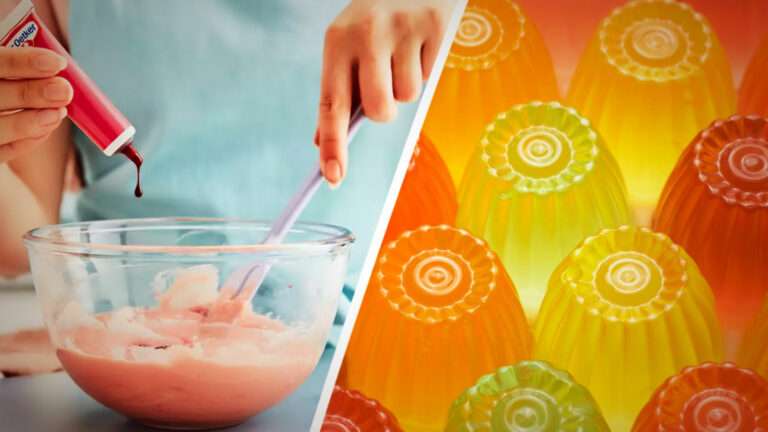What Your Acne is Trying to Tell You: 5 Signs of Deeper Health Issues
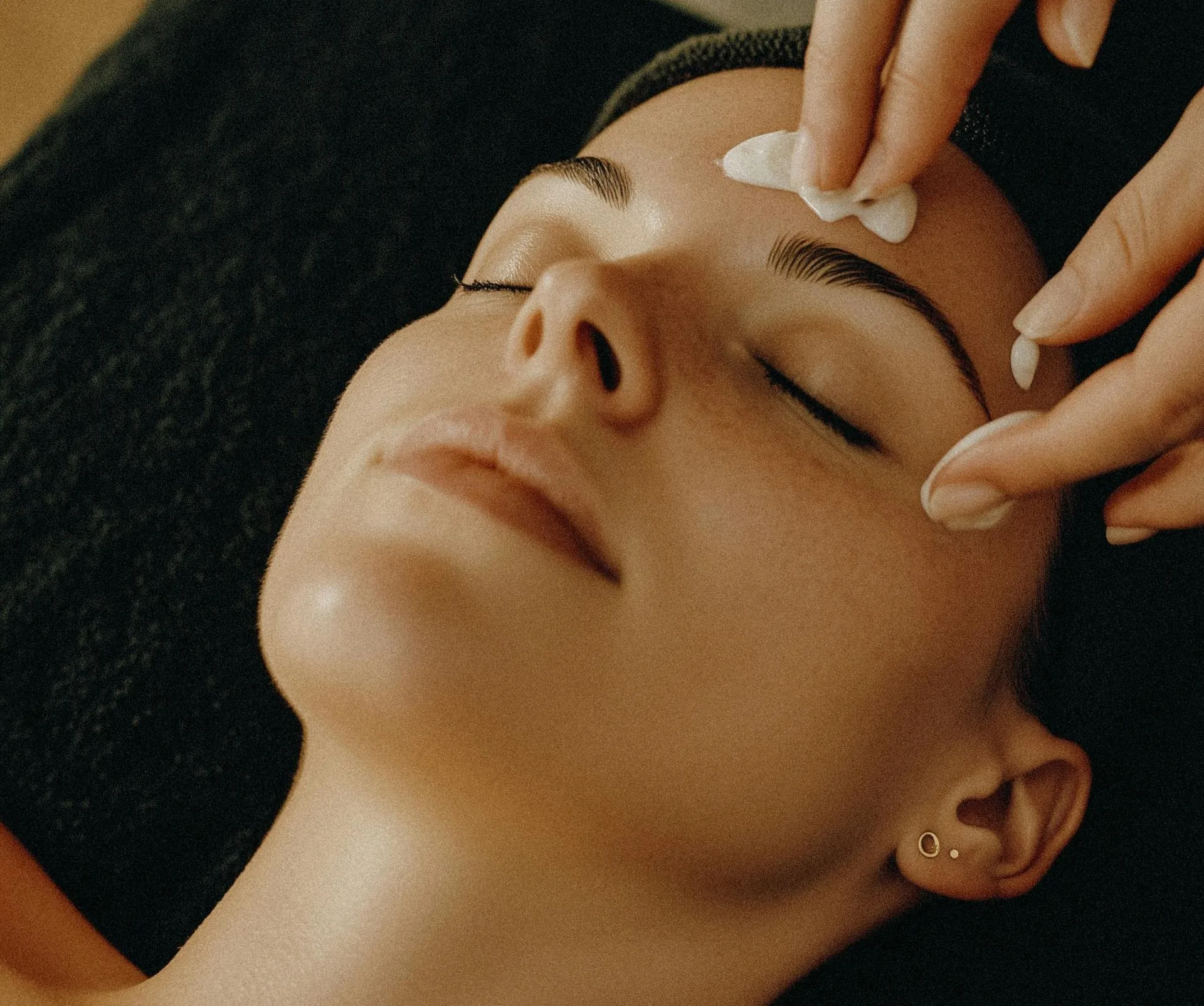
Acne isn’t just about skincare—it’s often a reflection of what’s happening inside your body. While breakouts are commonly linked to excess oil or clogged pores, persistent acne in specific areas may indicate underlying health concerns. Understanding the root causes of your acne can be the key to clearing your skin for good.
Your face can act as a map of your internal health, helping you identify imbalances before they escalate into bigger issues. By paying close attention to where your acne appears, you can uncover potential nutritional deficiencies, hormonal disruptions, or even stress-related triggers. This approach allows you to address the core problem, rather than just masking the symptoms with temporary solutions. Let’s dive into what different types of acne reveal about your body and how you can fix them naturally.
1. Acne on the Jawline & Chin: A Sign of Hormonal Imbalance
Why It Happens:
Breakouts along the jawline and chin are strongly linked to hormonal fluctuations. This type of acne is common during menstrual cycles, in individuals with hormonal imbalances, or conditions like PCOS (Polycystic Ovary Syndrome). Excess levels of androgens (male hormones) stimulate oil production, leading to deep, painful cystic acne.
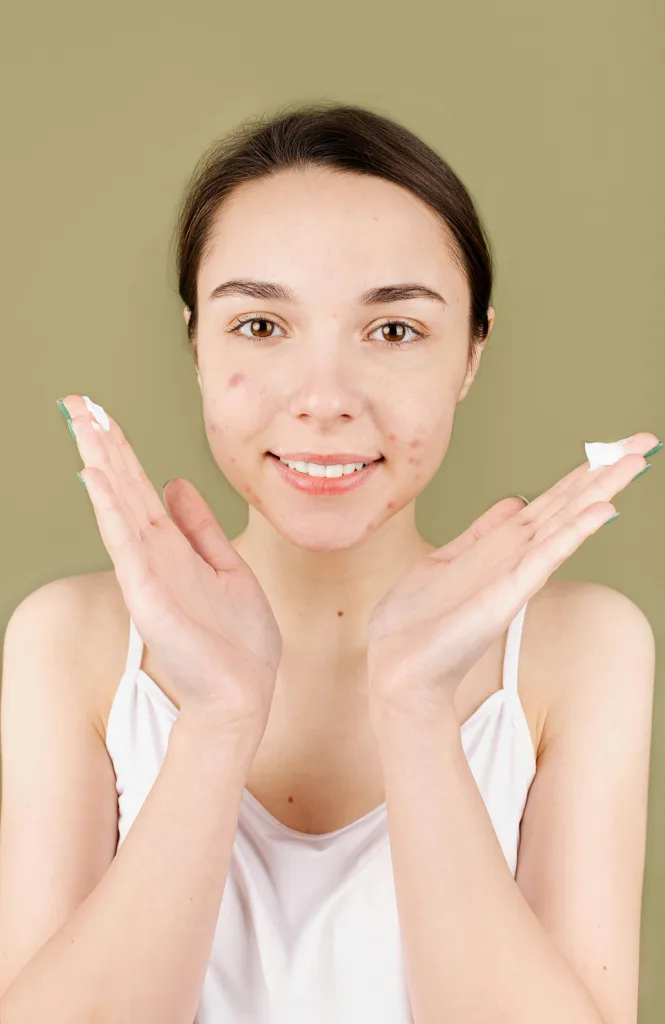
Other contributing factors include birth control use, pregnancy, or even menopause, all of which cause shifts in estrogen and testosterone levels. Additionally, chronic stress, lack of sleep, and high-sugar diets exacerbate hormone-driven acne by triggering insulin resistance and excess sebum production. Insulin resistance, in particular, can lead to more severe hormonal imbalances, and may increase the occurrence of cystic acne in the lower face area.
How to Fix It:
- Balance Your Hormones Naturally: Nutrients like zinc, omega-3s, and vitamin B6 help regulate hormone levels and improve skin clarity. Adaptogenic herbs such as maca and spearmint tea can also provide support by reducing excess androgen levels.
- Reduce Stress: Chronic stress raises cortisol, which can worsen hormonal acne. Implementing relaxation techniques like deep breathing, mindfulness, and maintaining consistent sleep hygiene are vital in balancing your hormones and preventing acne flare-ups.
- Adjust Your Diet: Limit sugar, dairy, and processed foods, which may contribute to hormone imbalances. Instead, prioritize whole foods rich in fiber, healthy fats, and lean proteins. These foods support stable blood sugar levels and help your body produce hormones more effectively. A balanced, nutrient-dense diet is crucial for improving skin health over time.
💡 Social Media Insight: Many people have reversed their hormonal acne by switching to a whole-food, hormone-supportive diet! 🌿 See real-life transformations here.
2. Acne on the Forehead: Your Liver May Need Support
Why It Happens:
Your forehead is connected to liver health and digestion. If you notice frequent breakouts in this area, it may indicate that your liver is overwhelmed by toxins or struggling to break down fats properly. Some common triggers include:
- Poor diet high in processed foods, which overloads the liver with toxins
- Dehydration & lack of water intake, preventing proper detoxification
- Excessive caffeine or alcohol consumption, which overworks the liver
- Chronic exposure to environmental toxins that your liver struggles to process
The liver is responsible for filtering out toxins from the bloodstream. If it becomes sluggish, excess toxins may be pushed out through the skin, leading to acne. Inadequate digestion or bloating can also be a sign that the liver is struggling to function at its optimal capacity. As the liver works hard to detoxify your body, it may reflect those struggles in the form of acne.
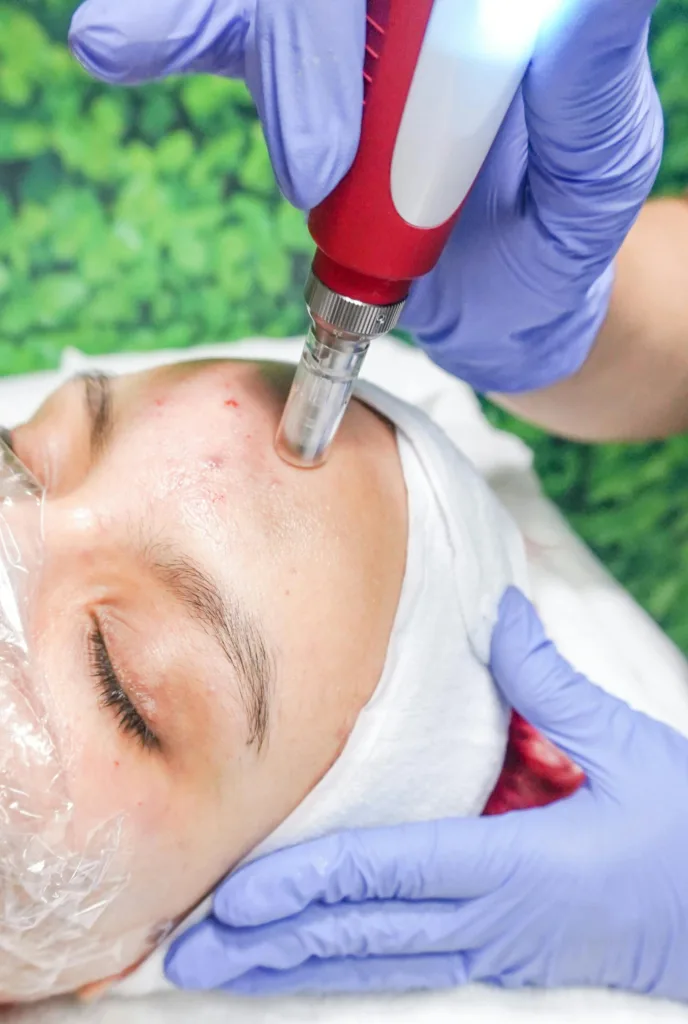
How to Fix It:
- Drink More Water: Aim for 8–10 glasses daily to flush out toxins, which will give your liver a break and support healthy liver function. Hydration is key to reducing skin inflammation caused by toxin buildup.
- Support Your Liver Naturally: Eat liver-supporting foods such as leafy greens, garlic, lemon, beets, and turmeric, which help detoxify and protect the liver from damage.
- Improve Gut Health: The liver and gut are closely connected! Add probiotics, fiber-rich foods, and digestive enzymes to aid digestion and reduce toxic buildup. Supporting gut health can relieve liver stress, as the gut helps filter out waste, making the liver’s job easier.
🔗 Read More: Can your gut health be affecting your skin? Find out here.
3. Acne on the Cheeks: Linked to Lungs & Hormones
Why It Happens:
Breakouts on the cheeks are often connected to lung health, pollution, and inflammation. If you live in a highly polluted environment or smoke, your skin may be reacting to poor air quality. Other common causes include:
- Eating inflammatory foods (sugar, dairy, processed foods), which contribute to internal inflammation and hormonal imbalance
- Allergic reactions to skincare or hair products, which can irritate the skin and exacerbate breakouts
- Lack of fresh air and oxygen circulation, particularly in urban or smog-heavy areas
- Sleeping on dirty pillowcases, which harbor bacteria and can transfer it onto your face
Cheek acne can also be a sign of insulin resistance, a condition where the body struggles to regulate blood sugar levels. High insulin levels can trigger increased oil production and inflammation in the skin, which leads to clogged pores and acne.
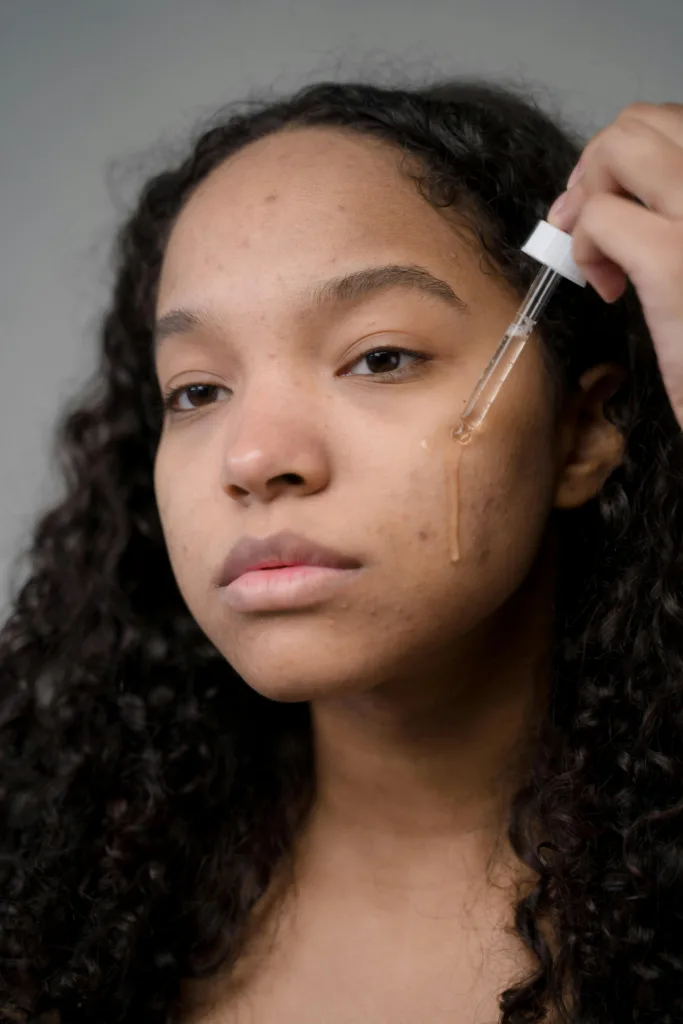
How to Fix It:
- Protect Your Skin from Pollution: Use a gentle antioxidant-rich moisturizer to shield against pollutants. Regularly cleanse your skin to remove any environmental toxins that can irritate the skin.
- Adopt an Anti-Inflammatory Diet: Cut back on dairy, refined sugar, and processed foods to reduce internal inflammation. This helps maintain a clear complexion and can prevent acne flare-ups.
- Exercise & Breathe Deeply: Oxygenate your skin by engaging in daily outdoor activities, practicing deep breathing exercises, and ensuring proper lung function. Good circulation helps clear toxins from your system and supports healthy skin.
💬 Trending Topic: Is your phone making your cheek acne worse? 📱 Check out the latest studies here.
4. Acne on the Nose: A Sign of Circulation & Heart Health Issues
Why It Happens:
Breakouts on the nose are often linked to blood circulation and heart health. If you frequently experience acne in this area, it may signal issues related to:
- High blood pressure or poor circulation, which impedes the flow of oxygen and nutrients to your skin
- Eating excessive fried and high-fat foods, which contribute to clogged arteries and poor circulation
- Chronic stress, which affects blood flow and leads to a decrease in skin health
- Nutrient deficiencies, particularly in B vitamins, which are essential for healthy skin
The nose is rich in sebaceous glands, making it a common area for blackheads and clogged pores. However, persistent or inflamed breakouts in this area may indicate deeper issues related to cardiovascular health, circulation, or nutrient absorption.
How to Fix It:
- Prioritize Heart-Healthy Foods: Eat more omega-3 fatty acids (salmon, walnuts, flaxseeds) and avoid processed fats that contribute to inflammation in your cardiovascular system.
- Exercise Regularly: Engage in 30 minutes of daily cardio to improve circulation and overall heart function. A healthy heart promotes healthy skin.
- Manage Stress Levels: Practice meditation, deep breathing, or journaling to reduce tension, which helps maintain healthy blood flow to the skin.
📌 Did You Know? Stress-related acne is more common than you think! Here’s how to stop it here.
5. Acne on the Temples: A Sign of Kidney Stress & Dehydration
Why It Happens:
Breakouts near the temples and hairline often indicate kidney function issues or dehydration. If your body is not getting enough water, toxins accumulate, leading to acne in this area. Other contributing factors include:
- Too much caffeine or alcohol consumption, which both cause dehydration
- Not drinking enough water throughout the day, which affects kidney function and skin hydration
- Chronic stress affecting kidney function, as stress hormones can alter kidney performance
- High-sodium diet leading to water retention, which strains the kidneys
The kidneys play a crucial role in filtering waste from the blood and maintaining fluid balance. When they’re overworked, toxins build up, leading to an increase in skin breakouts, especially in the temple area. Proper hydration is essential for kidney function and clearer skin.
How to Fix It:
- Stay Hydrated: Aim for 2–3 liters of water daily to keep your kidneys functioning optimally. Drinking plenty of water helps flush out waste, reduce puffiness, and supports overall skin health.
- Reduce Caffeine & Alcohol: Both can dehydrate your body and impair kidney function. Cutting back on these substances will help your kidneys detox more effectively.
- Eat Kidney-Supportive Foods: Add watermelon, cucumbers, herbal teas, and foods rich in electrolytes to support kidney detoxification and hydration.
💡 Quick Tip: Want to clear your skin naturally? Check out this expert-approved skincare detox guide! Read here.
Social Media Insights: Real Stories, Real Results!
Here’s what people on social media are saying about their experiences with acne and its link to health issues!
- Instagram Post:
“I used to think my acne was just skin deep, but after learning about the hormonal connection, I started eating hormone-balancing foods. My chin acne has drastically improved!”
Check out the full story and see before-and-after photos here on Instagram. - Facebook Post:
“I struggled with forehead acne for years, thinking it was just stress, but I realized it was my liver needing support! Now, I drink more water and focus on liver-supporting foods, and my skin has cleared up so much.” Read more about this transformation here on Facebook. - Twitter Thread:
“Cheek acne was a constant issue for me until I tackled my diet. I cut out dairy and sugar, and it made a huge difference! Now, my skin looks healthier and clearer.” Follow the full thread for tips and insights here on Twitter.

Final Thoughts: Listen to What Your Skin is Telling You!
Acne is not just a cosmetic issue—it’s a reflection of what’s happening inside your body. Instead of relying on temporary fixes, take a deeper approach by addressing the root causes through diet, lifestyle, and proper hydration. By focusing on long-term solutions, you can prevent future breakouts and improve your overall health.
🔗 Join the Conversation! Have you noticed a link between your acne and overall health? Share your thoughts on Instagram or Facebook!






